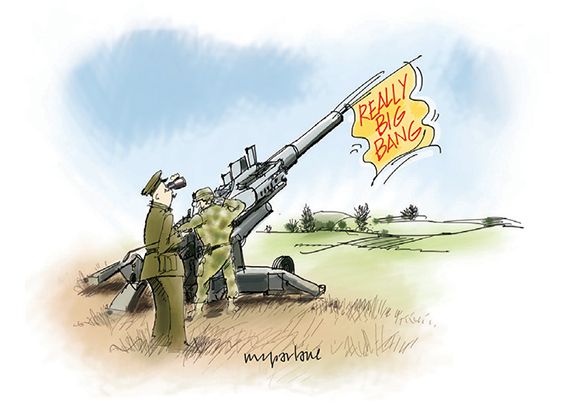The Wall Street maxim “Don’t fight the Fed” has gained new currency since the financial crisis, a period when the United States Central Bank’s interest rate policy has become by far the most important consideration for investors in all sorts of markets. It’s a simple message: the Fed is far more powerful and has far more money than anyone else so betting against it is suicidal.
Over the past few years, the major central banks have kept base rates low to boost the appetite for credit and to nudge investors to take greater risk by making the safest investments extremely unattractive. The aim is to ensure that capital continues to flow to parts of the economy that might otherwise be starved of investment. That’s the theory—and one can debate whether or not it’s worked in practice—but either way, the maxim still holds. Everyone who has thought central banks were crazy and rates could not possibly fall any further has so far been proved wrong. Today a lot of government bonds yield less than zero: those who fought the Fed have lost.
I was reminded powerfully of this famous saying when I read comments by Andrew Haldane, Chief Economist at the Bank of England, in the weeks before the UK base rate was cut again and further Quantitative Easing announced. Arguing for a major loosening of monetary policy after the European Union referendum result, Haldane said: “I would rather run the risk of taking a sledgehammer to crack a nut than taking a miniature rock hammer to tunnel my way out of prison.” For a central banker, that’s fighting talk. The Bank’s determination to head off the worst potential effects of Brexit will, it seems, brook no opposition: don’t fight the Old Lady of Threadneedle Street either.
For some, including me, this is an uncomfortable place to be. People generally want to invest on the basis of some fundamental notion of value or outstanding market opportunity. But if the most powerful agent in the financial system is saying, in effect, “we will do everything possible to stop prices crashing and to keep people borrowing and spending” then does it make any sense to try to value anything in the normal way? Shouldn’t we just accept that prices will be determined at least as much by people’s confidence in the central bank to stay on top of the situation as by any company’s actual performance?
It’s a very tough call. If you don’t believe that prices necessarily reflect anything “real” or “true” then it’s hard to make the leap of faith to buy. However, experience since the financial crisis, especially in the US, suggests that investor optimism buoyed by confidence in the central bank’s commitment to easy money can push prices up for years on end, irrespective of how stretched their valuations appear by historical standards.
Uncomfortable though it may feel I suspect the right course now is to remember that Wall Street maxim, stay in the markets and buy things that make sense to you. It looks like we’ve reached a stage where it will not pay to disagree with the Bank of England—and the message coming out of the Bank definitely isn’t “run for the hills.”













